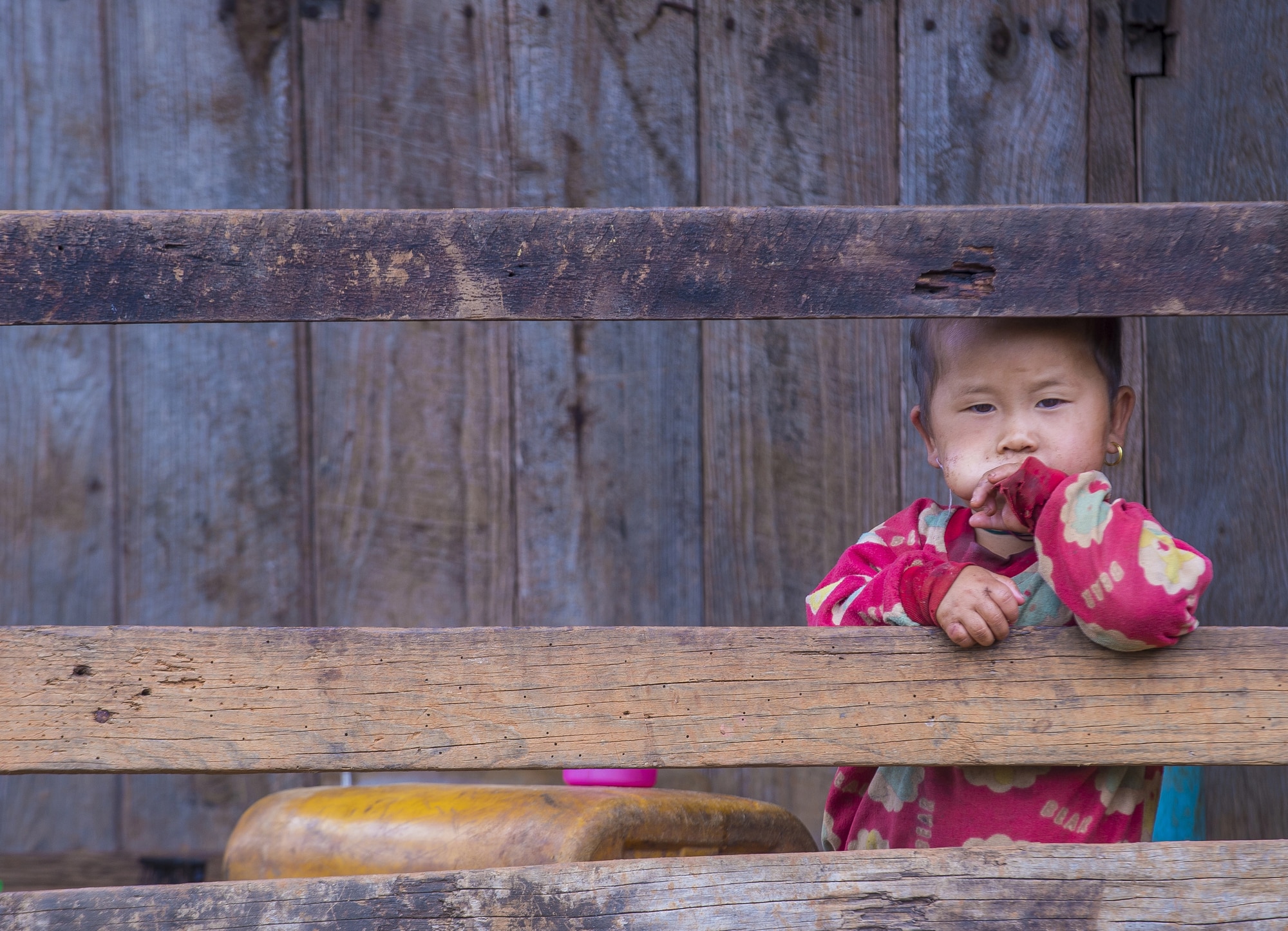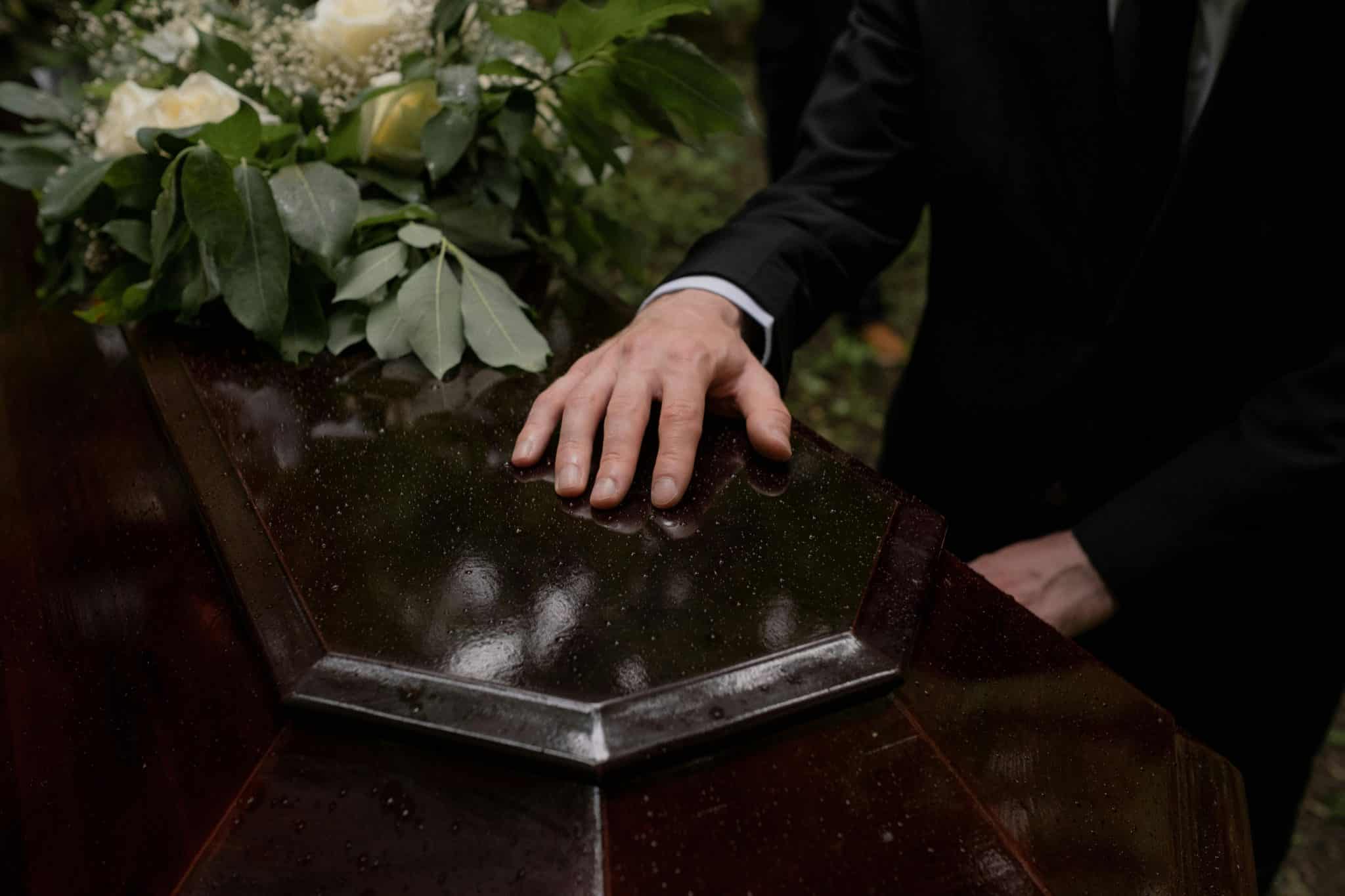Sulawesi, Lombok, Nepal: Missions chief James Tan runs towards disaster
by Tan Huey Ying // October 13, 2018, 10:00 pm
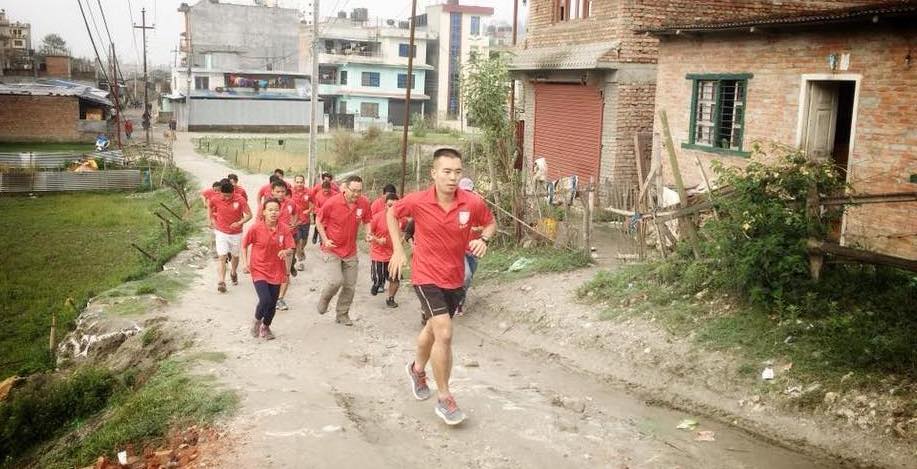
James Tan, Head of Missions in the Diocese of Singapore, training a leadership team in Nepal. All photos courtesy of James Tan.
It is a number that keeps climbing: 400 … 800 … 1,400 … and as of today’s news, the death toll in Sulawesi Island, Indonesia, stands at a staggering 2,073. That number is expected to rise further, with 5,000 people still missing.
This makes the September 28 earthquake, and subsequent tsunami, the deadliest earthquake worldwide so far in 2018, surpassing the earthquake that struck Lombok in July and August, killing more than 600.
Ground zero
Earthquakes. Tsunamis. Floods. Typhoons. The news just keeps coming.
It all sounds eerily familiar – varying only in the details.
For many of us, these disasters are just one more piece of bad news around the world. Few can – or even bother to – understand the extent of the loss of life and acute suffering of those at the various ground zeros.
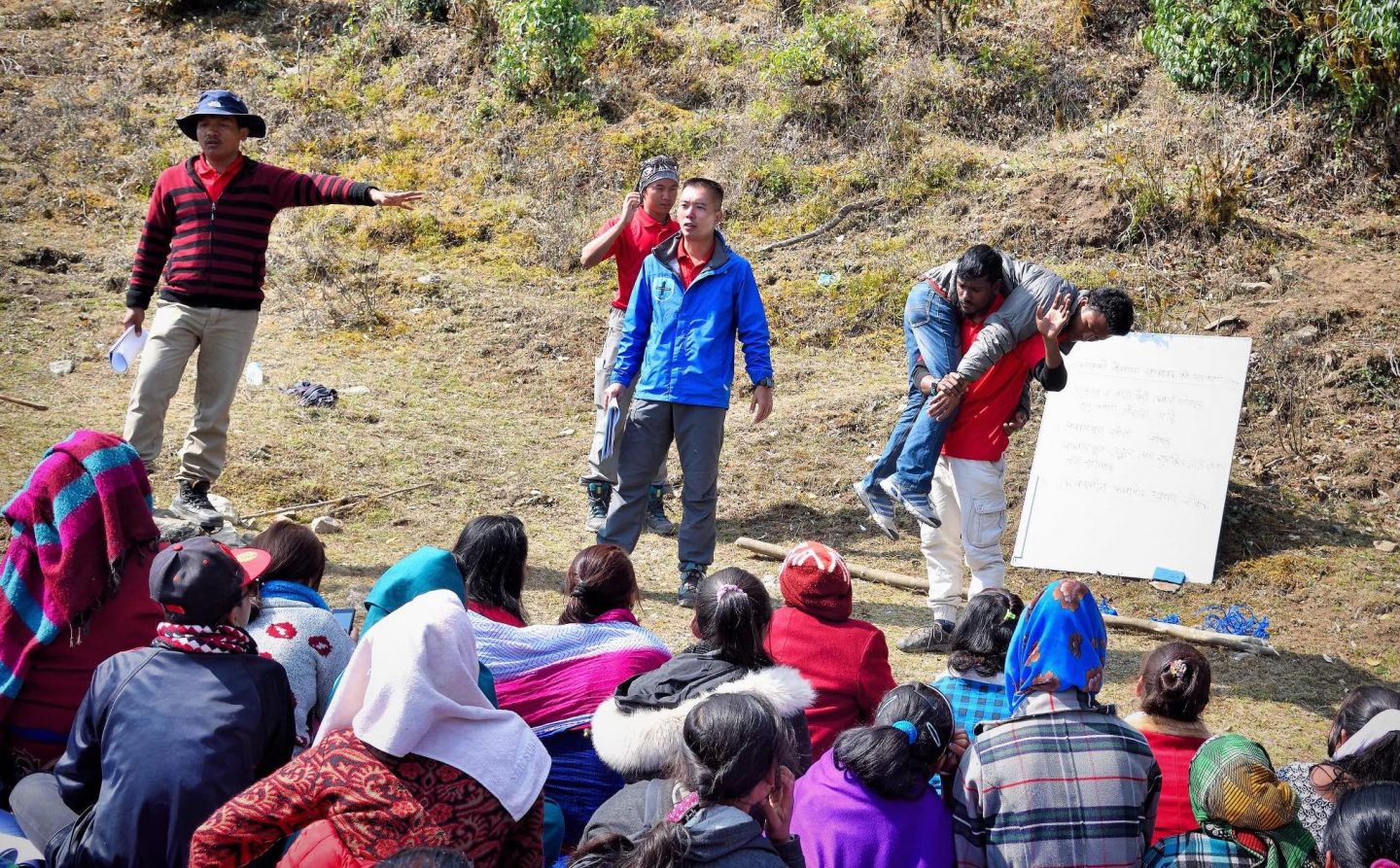
Conducting disaster-preparedness training for villagers in the mountains in Nepal.
But James Tan, Head of the Missions Department at the Anglican Diocese of Singapore, is no stranger to disaster.
The trim figure in his late-40s, who sports a crew cut, exudes an air of dependability in his firm handshake, steady strides and measured tone.
He returned not long ago from Lombok and Laos, where he led disaster teams in conducting needs assessments to ascertain the requirements of rebuilding the quake- and flood-hit regions.
He is now part of a response team that is monitoring the situation in Sulawesi.
Poverty and hopelessness
Almost 10 years ago, ex-colonel James Tan was the military force commander that led and deployed with a team of SAF team on a peace-building mission in Afghanistan.
He was 35. And it was the first time he personally encountered the effects of extreme poverty.
The first question that assailed him was: “How can this be possible?”
“The poverty I was exposed to here in Singapore really pales in comparison to what I saw … it was simply overwhelming.
“Actually seeing the hopelessness was far worse than seeing the poverty.”
“Seeing the hopelessness was far worse than seeing the poverty.”
The geographical terrain is dry and arid in Afghanistan, limiting villagers’ ability to grow food, hampered as they are by a lack of modern tools.
There is little by way of state-led initiatives on education or access to markets. On top of that, there is psychological and physical insecurity because of the persistent conflict.
“It was as if every element in their universe had conspired to trap them in this state,” Tan said. “If I survey my surroundings … there’s no future.”
On patrol, he would pass by groups of young Afghan men in their teens and early adulthood whiling away their time under the many little bridges that dotted the landscape.
It was disturbing to see these young men with no education and no jobs, and therefore no hope. This was fertile ground for resentment, making the men vulnerable to recruitment by rebel armies and criminal gangs.
War is man-made. But victims of natural disasters face similar struggles – especially in poorer and less-developed countries, noted Tan.
“I should do more”
When Tan finished his eight-month tour of duty, he came home convinced that “I should do more”.
His first-hand experience fed the feeling that he needed to contribute some of his skills and training to assist those afflicted by disasters – both man-made and natural.

Learning first-hand about the plight of the Rohingya refugees in Cox’s Bazaar, a refugee camp in Southern Bangladesh.
But life caught up with him and Tan admits that, for the next two years, he was preoccupied with his military career and family.
Eventually, through conversations and promptings from the Lord, he heeded that inner conviction and started volunteering regularly with Christian humanitarian organisations.
As he served, he started to realise how valuable his experiences in Afghanistan were. The skillsets learnt and training he had undergone were highly transferable and applicable in Christian humanitarian work.
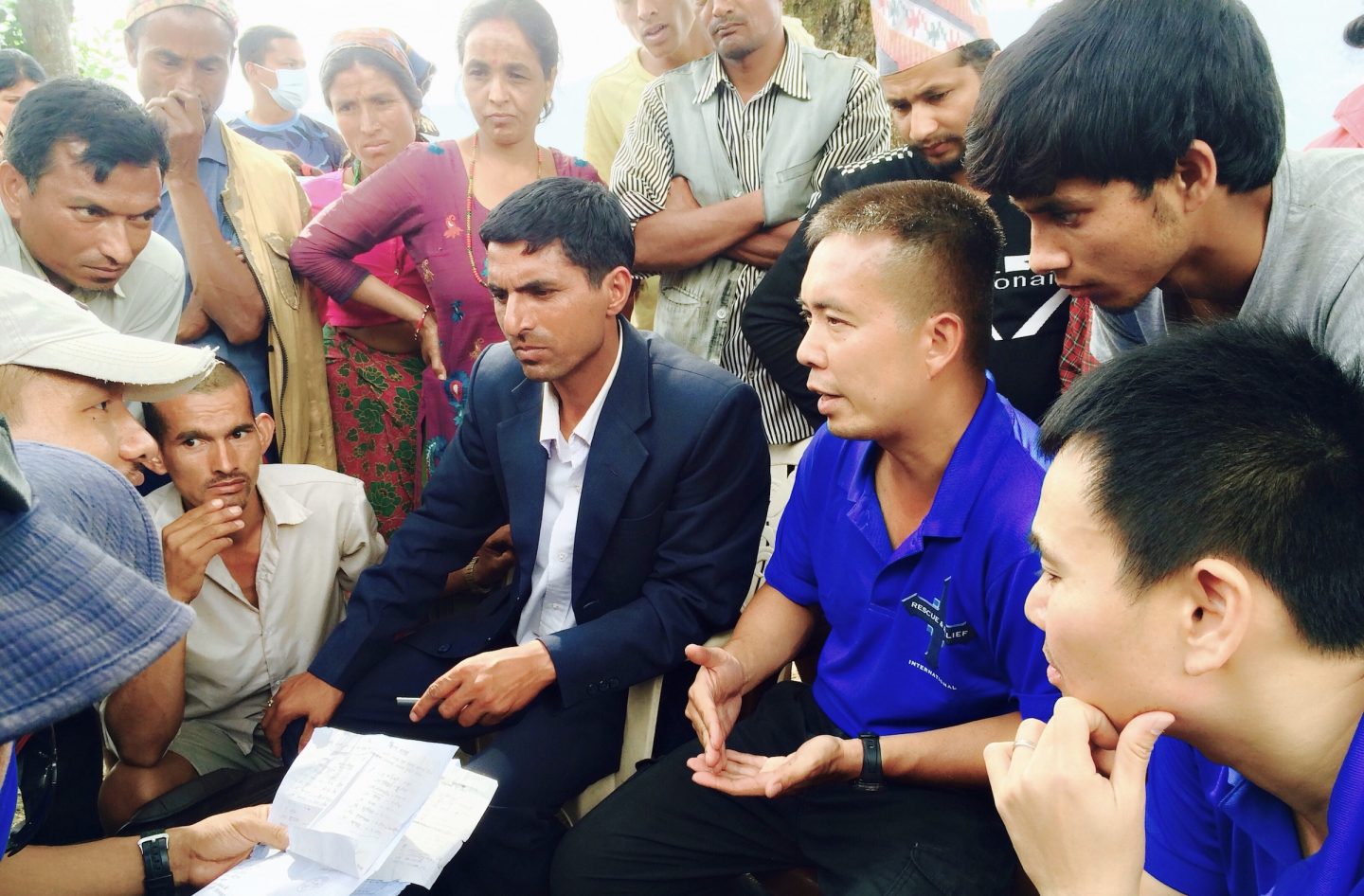
Conducting community needs assessment among the mountain villagers after the first earthquake in Nepal in 2015.
His time in Afghanistan had shown him the value of sustained and intentional outreach in building relationships amongst strangers.
“Bad guys” and babies
As part of the international coalition invited by the Afghan government, the Singaporean force was assigned a mountainous region of Afghanistan to undertake reconstruction efforts to help the Afghan people.
The larger goal was to help the Afghan government win the hearts and minds of their people.
“For her to hand me her child, it spoke volumes of the trust and relationship that had been built.”
Given the climate of mistrust towards officials, this was not easy.
Still, Tan was careful to ensure that engagement was done in a culturally-sensitive manner, listening to the community leaders instead of telling them what do to.
Eventually, “we ended up making friends – even with the ‘bad’ guys”!
There was a particularly memorable incident.
“We were in a mountain community where we had been treated with a lot of suspicion.” Understandably so, as they were combat-ready foreign soldiers armed to the teeth.
But on one of their last visits, the team was distributing stationery amongst the children. Suddenly, a mother handed her baby to Tan to be carried.
Surprised, he took the baby and even posed for a picture with him.
“This was significant. It represented a breakthrough in our relationship.
“In a conservative and tribal community, for an Afghan mother to give me – a foreigner and someone not of her religion – her child, it spoke volumes of the trust and the depth of relationship that had been built.”
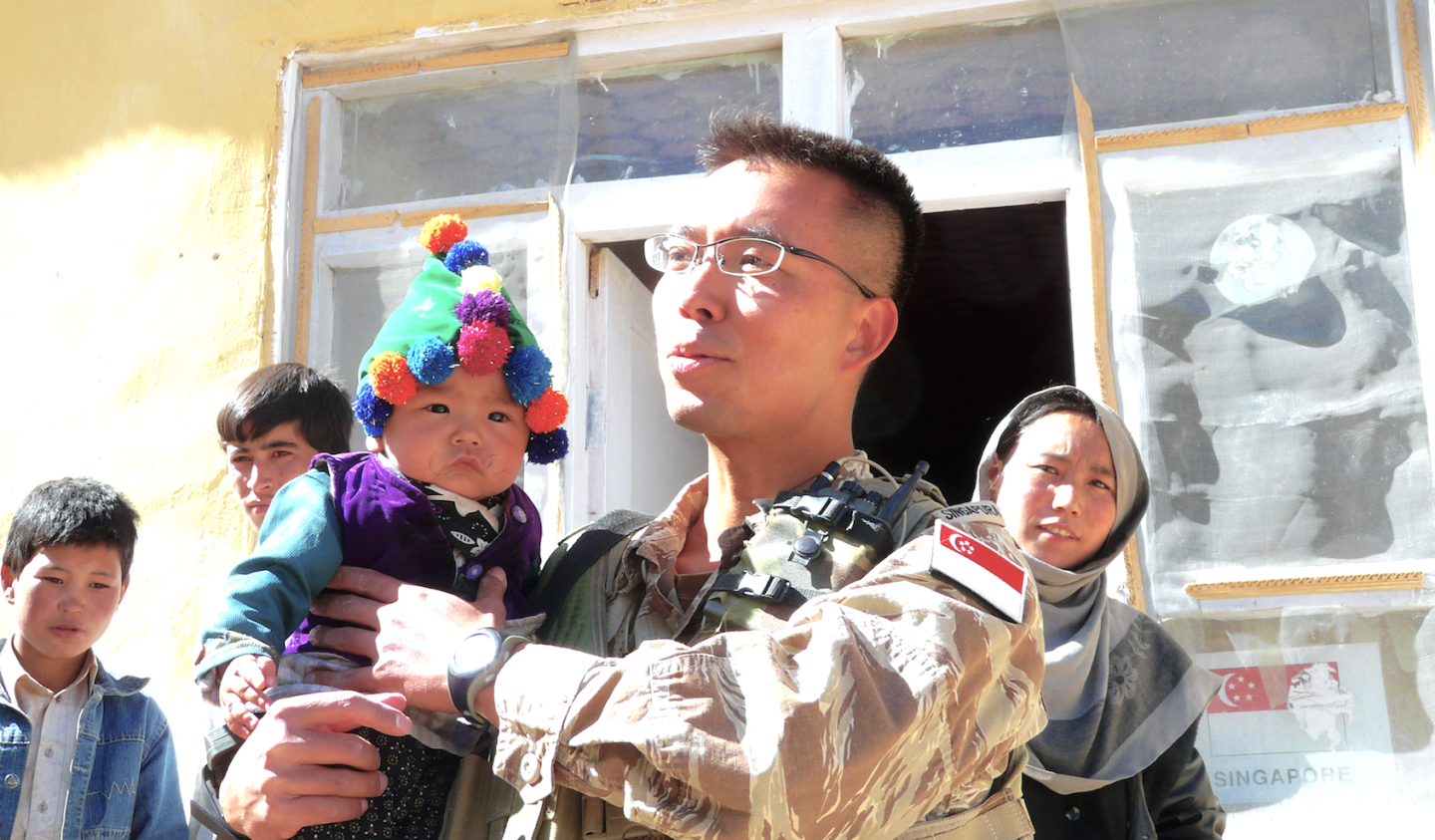
Notice the pen marks around the baby’s mouth? He had scribbled on himself using the pens that James Tan and his men were distributing!
A call to care
Back in Singapore, Tan’s growing involvement as a volunteer continued to clarify his calling in humanitarian work.
“It is when one avails himself to serve the Lord in whatever capacity, that you start to receive God’s compass,” Tan shared.
The army was his “Egypt”, a place of comfort and security.
“This is versus someone who sits in the aircon room, dreaming big dreams and thinking big thoughts. God’s call may not happen; and it may not be so real.”
Hearing God’s call was not a singular, one-time event for Tan. Instead, through one mission after another, God clarified the call on his life.
Tan says that he experienced the indescribable joy of the Lord when he served in the field. But as his involvement increased, a struggle soon emerged.
Proverbs 19:17 is a principle of giving that Tan has lived by for a long time; it is a conviction that drives the sacrificial life of serving those in dire need.
But there was one final hurdle: His career in the army.
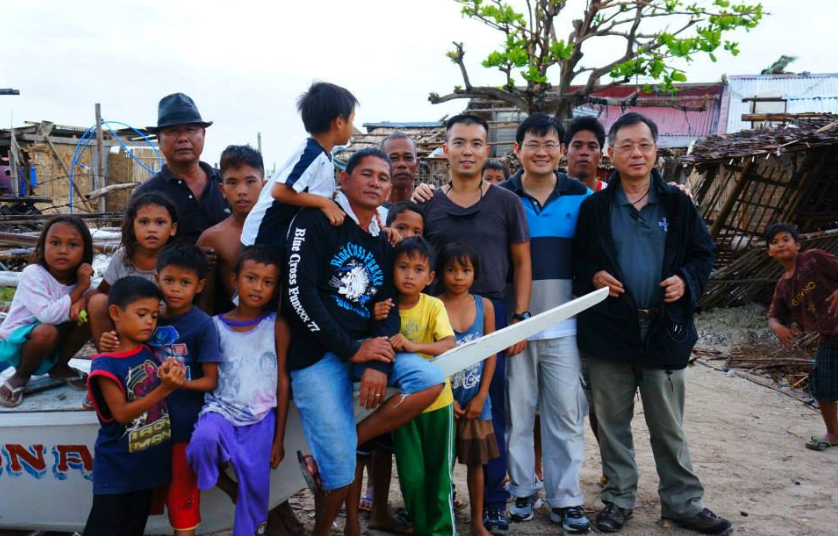
Volunteering in Bantayan, Cebu, after Typhoon Haiyan swept through the Philippines in November 2013.
One night in mid-2014, a conversation with the Lord convicted Tan that the army was his “Egypt”, a place of comfort and security.
Tan knew what to do.
In faithful obedience, Tan set aside his military career and left the army in March 2015, at the prime age of 44.
Rescue and relief
Less than a month later, on April 25, 2015, a 7.8-magnitude earthquake struck Nepal’s Gorkha district. Killing 9,000 and injuring nearly 22,000, it was the worst disaster in Nepal since 1934.
Tan partnered with local humanitarian organisation Rescue and Relief International (RRI) and was one of the first waves of rescue teams on the ground less than 72 hours after the quake.
They were on an exposed mountainside … and caught in the epicentre of a 7.3-magnitude earthquake.
Having raised funds for aid, they had 15 tonnes of relief supplies loaded onto a truck that was headed for the most remote villages that were not receiving aid. The team comprised both Singaporeans and Nepalese volunteers – some of whom were on their very first relief mission.
Their priority – the marginalised. “It is the already-poor who are the hardest hit, so it was especially important for us to focus on the marginalised.”
International aid organisations had reached many villages within easy road access, so Tan and his team decided to trek up a mountain in the region of Sindhupalchok to conduct a needs assessment.
At noon, they were starting to make their way down one mountain when the earth shook.
They were on an exposed mountainside … and caught in the epicentre of a 7.3-magnitude earthquake.
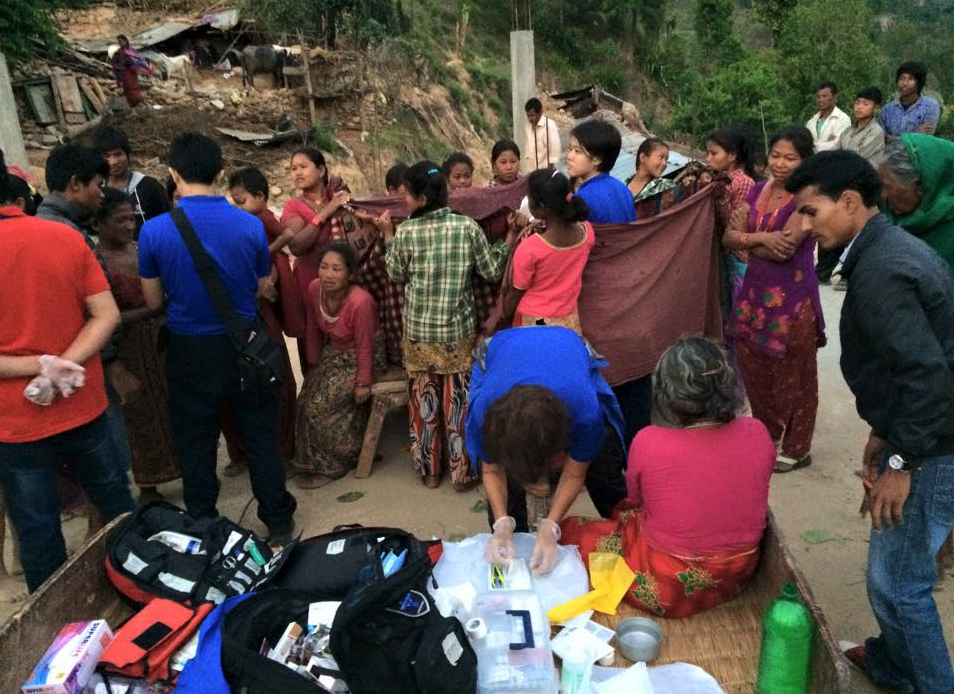
In May 2015, Tan and the RRI team hiked a full day into the quake-hit Nepal highlands to reach this village and set up their mobile clinic on-site.
“I sensed straightaway this was a major earthquake, not a mere two-second aftershock,” Tan said in a level tone.
“It lasted 50 seconds. That is a very long time when the earth is rocking violently underneath you.”
Survival mode
His training kicked in. Tan surveyed the situation, weighed his options and made a quick judgement call.
There was no change in his demeanour as he described his thought process:
Running down towards the vehicle track some distance below is out of the question. Too risky.
Running downhill under normal circumstances is dangerous; running downhill with the ground shaking beneath your feet is a death sentence. Plus, there is a high chance of being caught in landslides and being crushed by falling boulders.
“Then for some strange reason, I looked up,” he said. “And I saw a small, terraced plot of maize – these were thick and sturdy stalks of mature corn.
“I realised it could serve as a good buffer against any potential landslides, and there was just enough space to fit the 12 members of my team.”
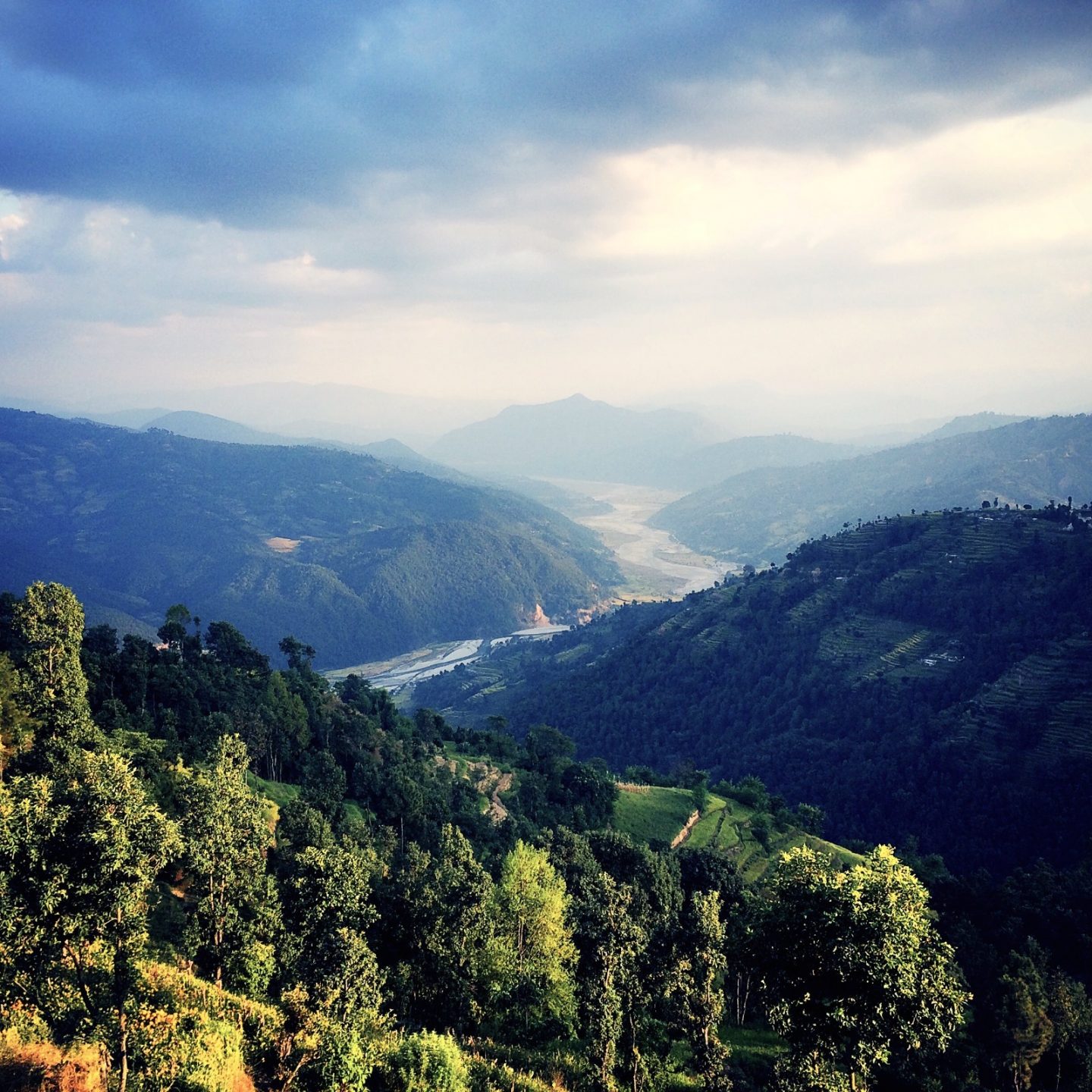
The mountains in the Sindhupalchok region, where Tan and his team were caught at the epicentre of a 7.3-magnitude earthquake.
He paused. “Insights like these, I’d like to believe, are a sign of protection from the Lord. Most people, myself included, wouldn’t have thought to look up – it is not a natural thing to do.”
“Insights like these, I’d like to believe, are a sign of protection from the Lord.”
He led the team in a mad scramble up the mountain. On the little terrace notch, they interlocked their arms and hugged the tall, sturdy maize stalks for stability. Around them, disaster was unfolding.
“We watched pockets of the mountains across us get dislodged and cause huge landslides. We heard people screaming. We saw them fleeing – they looked very small. The houses built on the sides of the mountain gave way. It was really a mesmerising sight. The fear only kicked in much later.”
That day, 153 people died. But Tan and the RRI team escaped unscathed despite being right at the epicentre.
His call was very clear now. He had the training and experience that would help to save lives – and he knew he needed to use it to serve others in need.
Good-focused and God-focused
In September 2017, Tan joined the Anglican Diocese of Singapore as the Head of the Missions Department.
His work involves the raising of mission leaders, training others in disaster preparedness and various forms of community development.
However, in times of crisis, part of his role is to assist the relief and reconstruction efforts of the various deaneries of each country to bring hope to affected communities.
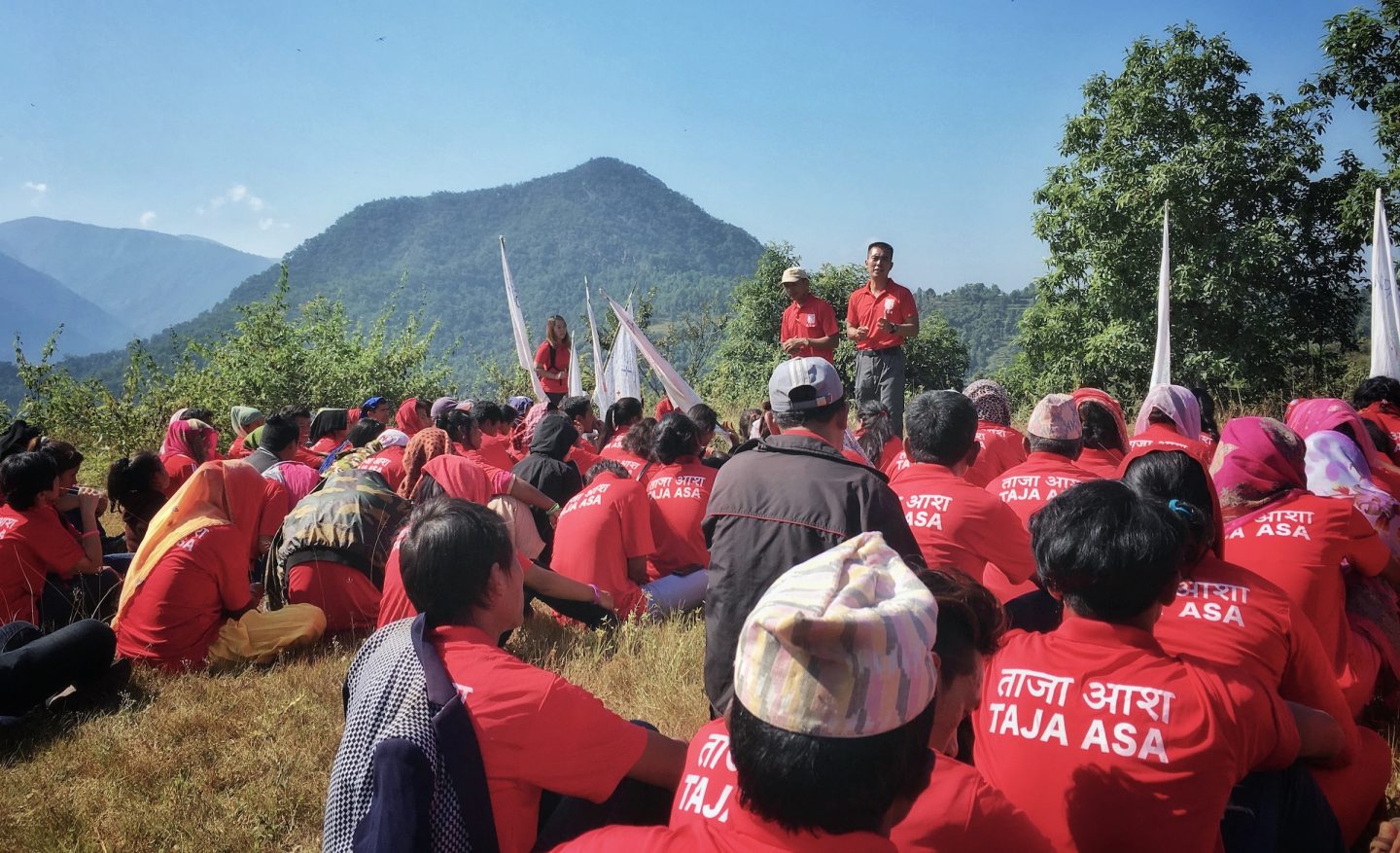
Raising and training Nepali village teams in leadership and disaster preparedness through leadership camps
Looking back, Tan believes that, while the preparatory training, skills and methodologies are similar across both secular and Christian-based humanitarian efforts, there is one key difference: Secular humanitarians are good-focused; but Christian humanitarians have that additional element of being God-focused.
“The real danger is to talk about Jesus but never demonstrate His love.”
For Tan, being God-focused is not just a motivator; it also informs the ways he responds to crises.
“We are just the means,” he says. “The real danger is to talk about Jesus but never demonstrate His love.”
Bombarded with a slew of crises this year – with new developments unfolding from ground-level sources all the time – Tan constantly feels his heart pulled in different directions.
“I’m not stretched, but definitely conflicted.”
He has come to realise that he has to be humble enough to accept that he is only human – limited and unable to respond to every need that arises.
His answer: Surrender.
Not to hopelessness, but to the wisdom and sovereignty of a God who loves the world. (Isaiah 40:10-12)
It comes back to being God-focused, and trusting the Lord to lead and open doors to rescue and relief missions for the world.
How you can help
Pray – Give – Go
This is a season of multiple disasters. Help is needed on many fronts. Much is being done, but still more is needed.
Financial aid for the Sulawesi earthquake and tsunami response is being collected by the following organisations based in Singapore:
- World Vision
- Singapore Red Cross
- Mercy Relief
- Caritas Humanitarian Aid & Relief Initiative Singapore
The Anglican Diocese of Singapore will be responding to the crisis in Sulawesi. Please email [email protected] if you wish to volunteer.
We are an independent, non-profit organisation that relies on the generosity of our readers, such as yourself, to continue serving the kingdom. Every dollar donated goes directly back into our editorial coverage.
Would you consider partnering with us in our kingdom work by supporting us financially, either as a one-off donation, or a recurring pledge?
Support Salt&Light
